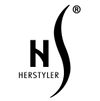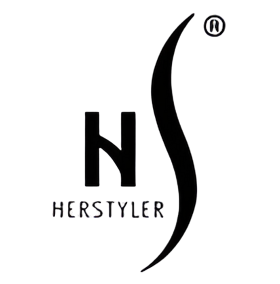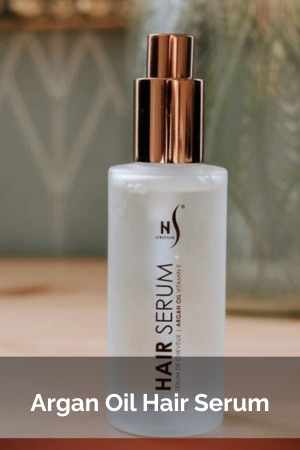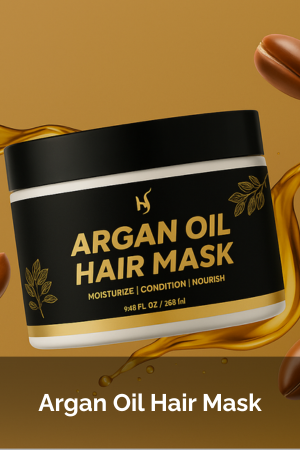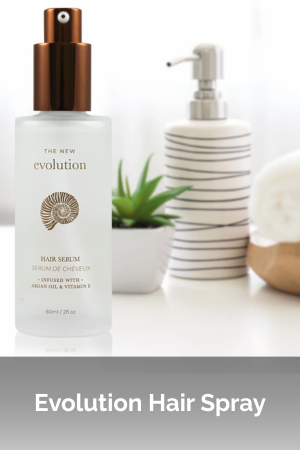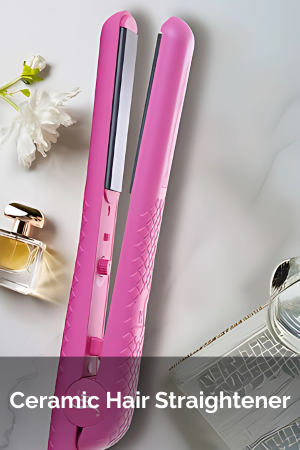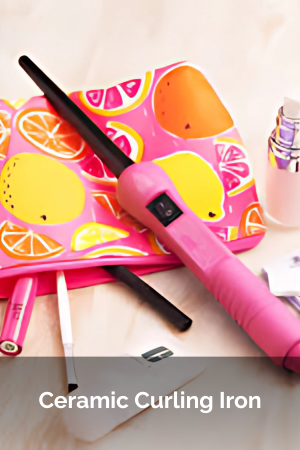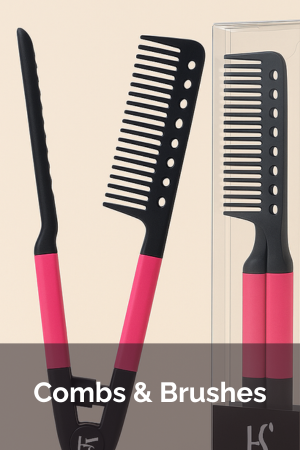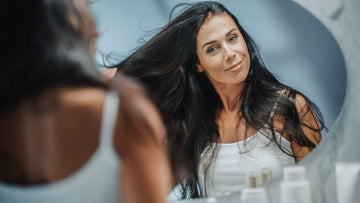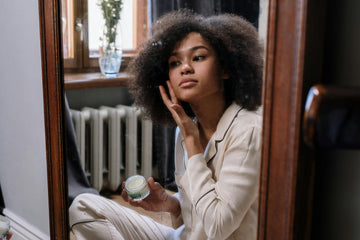Whether your hair hasn’t been growing as quickly/thickly as it used to or you’ve been noticing a lack of shine and vitality, many who aren’t seeing the results that they’ve been hoping for with their hair care routine often turn to hair supplements in an attempt to rectify this.
At first glance, hair supplements seem pretty great. These little pills promise a mane that’s worthy of starring in a shampoo commercial, and who wouldn’t want that?
However, delve a little deeper and you’ll soon discover some controversies that may dissuade you from taking oral supplements for the benefit of your locks. Read on as HerStyler talks you through the pros and cons of hair supplements to help you decide whether or not this is a path that you should be taking.
What Are Hair Supplements?
Usually in the form of pills or capsules, hair supplements are created for various purposes. Some will be general all-rounders, promising to enhance the overall look and feel of the hair. Others are more specific in nature. Some claim to increase hair growth, others offer to boost shine, and many pledge to leave the hair stronger and more elastic.
The ingredients within a hair supplement will depend on exactly what that supplement has been designed for. However, hair supplements usually contain a blend of vitamins, minerals, and herbal extracts. Some will also contain animal-derived ingredients, such as collagen or fish oil.
Do Hair Supplements Really Work?
The big question is – do hair supplements actually work? Are they worth taking?
These are tricky questions – most doctors would answer them with a resounding ‘no’. While it’s true that certain nutrients are directly linked with hair health, there isn’t any clinical data confirming that hair supplements are able to deliver on their promises.
Of course, there are always exceptions. In this case, the exception would be if you happen to be deficient in one of the nutrients that your hair supplements contain. For example, one study found that women who experience hair loss often have lower levels of iron in their body than those who don’t suffer from hair loss. If they were to then take a hair supplement containing iron, then this would bump your body’s iron levels back up and your hair would benefit.
With that said, deficiencies in the ingredients commonly used in hair supplements are very rare. If you don’t have a deficiency in any of those nutrients, then taking them as a supplement is unlikely to make any difference to your locks whatsoever.
The Problem With Hair Supplements
While hair supplements may initially seem like a quick and easy fix to all of your hair problems, they have a dark side that many aren’t aware of…
One of the main issues is that hair supplements, just like other dietary supplements, are regulated as a food, rather than as a drug. This means that standards aren’t quite as stringent as they should be. Supplement manufacturers don’t need to disclose any information about safety, quality, or efficacy. As you can imagine, this can be pretty dangerous.
With this in mind, it’s hardly surprising that so many adverse effects have been reported by those who have taken hair supplements. With nobody regulating what’s actually inside them, people have experienced a number of issues. Everything from allergic reactions to an increased risk of diabetes and cancer can arise.
Ironically, hair loss is another risk that you undergo when taking hair supplements. When some nutrients, such as selenium, are taken in overly high quantities, this can lead to an increase in breakages and hair loss. You might think that you’re doing your hair a favor by taking those supplements. However, in reality, you could be making matters even worse for yourself.
Other Ways to Achieve Healthy-Looking Hair
So, if oral hair supplements aren’t the best way forward, what else can you do to achieve a mane that looks full and lustrous? Here are some of our top tips:
Use the Right Hair Care Products
Let’s start with shampooing, something that just about everyone does. It’s important but, at the same time, shampoo your hair too often and you’ll only end up damaging it. It will lead to hair breakages, loss, and a lack of shine. The solution is to only shampoo your hair when it actually needs to be washed. Do so with a gentle shampoo that isn’t going to strip your strands of their protective layer.
A rich conditioner can also help to transform the look of your locks. Look for one that contains hair-loving nutrients, such as the HerStyler Argan Oil & Biotin Conditioner. Biotin is an ingredient that’s commonly used in hair supplements. Although taking the nutrient orally is unlikely to make a difference to your hair, applying it topically gives your strands instant access to the ingredient. This results in hair that feels stronger and smoother.
Another way to give your hair a direct nutrient boost is with a hair serum. You’ll find biotin again in the HerStyler VitaOil Biotin Hair Serum, along with vitamin E and aloe vera, the latter of which is bursting with hair-loving nutrients. The Marula Hair Nourishing Serum would be another good choice if you’re hoping for locks that look thick and glossy.
Eat a Varied Diet
As we mentioned earlier, the only time hair supplements actually work is if you happen to be deficient in one of the nutrients that they provide. Still, with unknown quantities of that nutrient in whichever supplement you choose, things could swing to the other extreme. You could end up ingesting too much of that nutrient and then suffer from the consequences.
Rather than turning to hair supplements, the best way to address a nutrient deficiency is by improving your diet. Ideally, your diet should be as fresh and varied as possible. If you’re eating plenty of fruits, vegetables, lean proteins, whole grains, and unsaturated fats, it’s very unlikely that you’ll end up with a nutrient deficiency.
With that said, certain nutrients are known to be particularly beneficial for the hair. This makes it worth incorporating more sources of these nutrients into your meals:
- Biotin – can be found in beef liver, eggs, milk, mushrooms, nuts, and seeds
- Vitamin A – leafy greens are a good source, as are fruits and vegetables that are orange or yellow in color
- Vitamin C – you’ll find high amounts of this antioxidant in citrus fruits, strawberries, peppers, and broccoli
- Iron – red meat and beans are packed with iron
- Vitamin E – seeds and nuts (as well as the cooking oils derived from them) are good sources. Mangos, avocados, and oily fish are full of vitamin E too
- Omega fatty acids – seafood, along with nuts and seeds, are the best sources of essential fatty acids
- Zinc – meat, seafood, eggs, and dairy products are great sources of zinc
Keep Damage to a Minimum
No matter the hair problems that you’re currently dealing with, any form of additional damage to your mane is only going to exacerbate your issues. This makes it important to keep damage to a minimum as much as possible. How? Here are a few ways:
Be Gentle With Wet Hair
Whether you’re detangling your locks or are towel-drying them, people can often be pretty rough with their hair when it’s wet. While roughness should be avoided at all times, it’s most dangerous with wet strands because this is when your hair is most fragile and prone to snapping.
To keep your strands safe, be as gentle as possible with them. When drying your hair, use a microfiber towel to gently squeeze out any excess moisture. This is much safer than vigorously scrubbing your strands with a regular towel. Likewise, when detangling, start with your fingers before turning to a detangling brush. Also, make sure that your hair has been lubricated with either a conditioner or a dedicated detangling product.
Avoid Heat Damage
Do you regularly heat style your hair? If so, you’re likely aware that you could be causing damage to your locks each time you do so. The high temperatures emitted by heated styling tools can leave strands dehydrated and brittle.
To counter this, always apply a heat protectant before heat styling your hair. Whether you use a dedicated heat protectant product or your regular hair serum, the additional barrier that this will create over your strands will help to shield them from the heat.
Heated styling tools that come with the ability to adjust temperature are also a game-changer. You’ll find several of these available from HerStyler, meaning that you won’t need to subject your hair to a single, super-high temperature. This is only needed if you have very thick and coarse hair. For everyone else, sure, it will style your hair but it will also cause damage. You’ll achieve the same results, without the damage, if you simply turn down the temperature slightly.
Protect Against Environmental Damage
Even if you don’t heat style your hair, you’ll still be experiencing damage from the environment all around you. The sun, fluctuating humidity levels, the cold, strong winds – all of the elements will affect your strands somehow, and usually not in a good way.
Simply covering your hair up, whether with a headscarf in the summer or a hat in the winter, will provide so much protection. Tying your hair back into a loose braid or a bun will also help to keep the majority of your strands tucked away from the dangers around them.
Conclusion: Should You Be Using Hair Supplements?
When it comes down to it, hair supplements are a clever idea, but they’re not needed. Not only is there no science to prove that they work but the lack of regulations surrounding them means that you’ll never know for sure whether or not the supplements you’re using are safe or beneficial. Plus, don’t forget that over-supplementing your body with certain nutrients can make hair problems worse!
Instead, if you’re having hair problems, try to resolve them using other methods. Swap your supplements for fresh and whole foods that provide the same nutrients. Combine this with a solid hair care routine and protection from future damage and your hair will soon start to look and feel better than ever before!
Click here to shop for more bestselling hair products from HerStyler.
